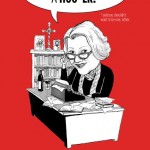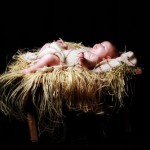Matt Emerson, who has recently served up some excellent, challenging and provocative reads for us in the Catholic portal (and will soon be launching his own column with us) considers Stephen Colbert’s sly, “cloak and dagger catechesis” and why it makes him a cheerful ambassador for the church, and perhaps the “best thing going” in American Catholicism.
Colbert is a practicing Catholic and so is his character, and sometimes something apostolic appears to break through. Consider the confetti of Catholic words that opened the post-Easter episode. In the opening monologue, a groggy, depleted Colbert began to recall his weekend, unbosoming memories from what he called his “Catholic bender.”
It had started, he said, on Holy Thursday night. Walking past St. Patrick’s Cathedral, Colbert “caught a little whiff of incense.” Not long after, he was “stumbling through the streets of Manhattan in a chasuble and mitre begging for quarters to buy votive candles.” He later “genuflected all over the back of a cab” and eventually passed out near an “abbot illuminating a manuscript.” The bacchanal included a concurrent saying of the Hail Mary and the Our Father, in Colbert’s words, “the Catholic speedball.”
“I guess I just have to accept,” Colbert concluded, “that I’m a functional Roman Catholic.”
It was hilarious. And it was not the first time that Colbert revealed his inner catechist. So numerous are the clips involving religious and Catholic topics, one could almost assign the “The Report” to introduce Catholic theology.
I agree with Emerson’s thesis. Colbert dares to not just “invite” Catholic priests, authors and theologians onto his show, he “welcomes” them. And even within his satirical broadcast, he makes it clear that teasing is okay — Catholics can take it, or should be able to — but the theology, the dogma, the creed are where lines are drawn.
Some, I’m sure, don’t like it, or they feel Colbert allows too much license — takes too much for himself — but I am inclined to think that there is something in Colbert that is of a piece with our dear St. Philip Neri, who was (as Pat Gohn wrote this week) a happy fool for Christ in ways that allowed Christ to be magnified, and his own lowly self to be humbled.
There are a number of Colbert links in Emerson’s piece. Take them all in, and see what you think!












